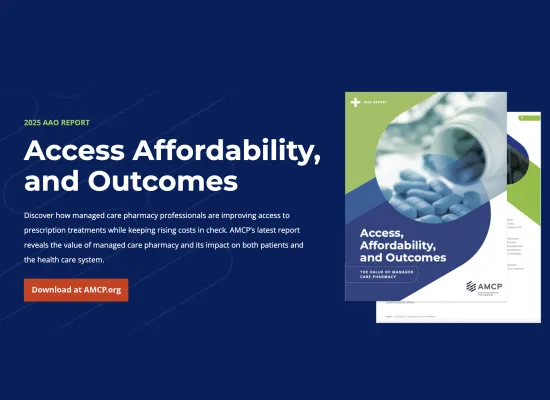
February's Journal of Managed Care & Specialty Pharmacy Focuses on Rising Health Care Costs
Alexandria, Va., Feb. 12, 2016 — This month's issue of the Journal of Managed Care & Specialty Pharmacy (JMCP) takes an in-depth look at various causes and consequences associated with rising health care costs--including the recent spike in prescription drug spending, which has generated significant public outrage and calls for government intervention.
In 2014 prescription drug spending in the U.S. increased by 12 percent, reaching nearly $300 billion. By comparison, the increase in 2013 was only 2.4%, and before 2013, spending on prescription drugs had actually decreased year over year. The media has been quick to highlight that $11.3 billion of the spending increase was attributed to hepatitis C drugs alone, according to JMCP Editor-in-Chief Laura E. Happe, PharmD, MPH.
Despite the surprise portrayed by media outlets, managed care pharmacists have been anticipating this growth in drug spending, Happe says in a letter from the editor in the February issue.
“The authors who publish in [JMCP] are facing increasing drug spending head-on by testing innovative formulary methods, seeking to identify cost drivers, and aiding in budgetary forecasting for payers," she adds. "At JMCP, our role is to connect these authors with innovators who can adopt their lessons learned and make wide-spread impact on reducing health care spending while improving outcomes."
Articles in the February issue include in-depth assessments of cost drivers for patients who consume high health resources and the changing costs of compounded prescriptions, as well as a discussion of how managed care tenets are being applied in Medicaid programs. Article titles include:
- What Contributes Most to High Health Care Costs? Health Care Spending in High Resource Patients
- Variation in Formulary Management Practices Within the Department of Veterans Affairs Health Care System
- Impact of Out-of-Pocket Costs on Prescription Fills Among New Initiators of Biologic Therapies for Rheumatoid Arthritis
- Impact of a Novel Cost-Saving Pharmacy Program on Pregabalin Use and Health Care Costs
- State Medicaid Programs Bring Managed Care Tenets to Fee for Service
- A Budget Impact Model of Hemophilia Bypassing Agent Prophylaxis Relative to Recombinant Factor VIIa On-Demand
- Budget Impact of Enzalutamide for Chemotherapy-Naïve Metastatic Castration-Resistant Prostate Cancer
- Utilization and Costs of Compounded Medications for Commercially Insured Patients, 2012-2013
“With prescription drug spending rapidly rising, the expertise of managed care pharmacy in managing the drug spend, while improving health outcomes has never been more relevant," Happe says. "We must continue to study ways to reduce unnecessary drug costs without compromising clinical value. At the same time, we are challenged to measure the value of increased drug spending when it improves clinical outcomes."
Read the full issue at www.jmcp.org.
About JMCP
The Journal of Managed Care & Specialty Pharmacy publishes peer-reviewed original research manuscripts, subject reviews, and other content intended to advance the use of the scientific method, including the interpretation of research findings in managed care pharmacy. It is dedicated to improving the quality of patient care by providing its readers with the results of scientific investigation and evaluation of clinical, health, service, and economic outcomes of pharmacy services and pharmaceutical interventions, including formulary management. www.jmcp.org
Featured News & Resources
See Full CalendarAI Pre-Conference Program
AMCP Southwest Day of Education
Upcoming Events
AMCP offers a wide variety of educational opportunities, from events and webinars to online training.







